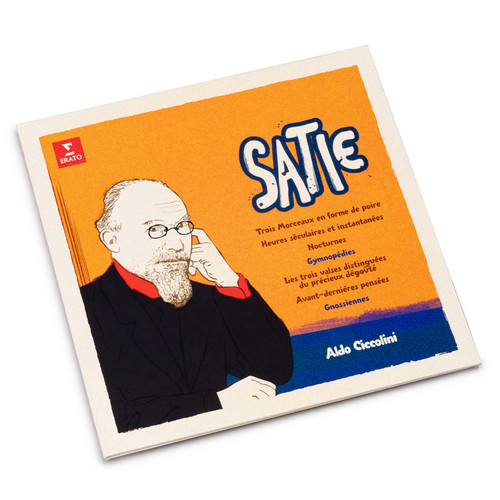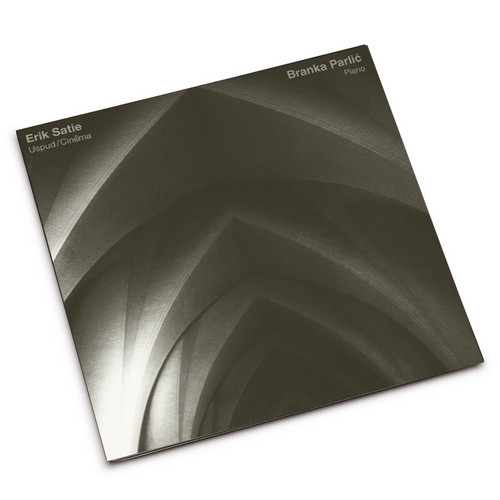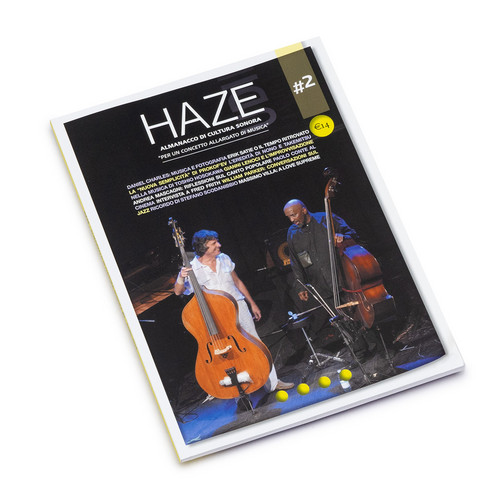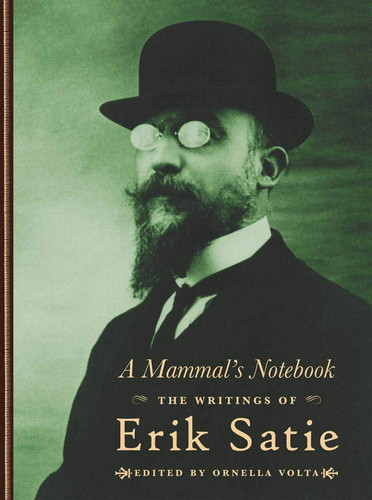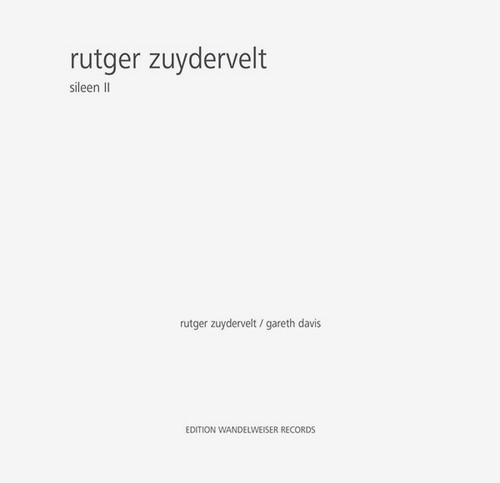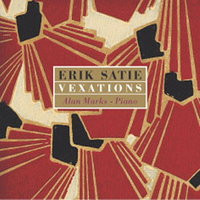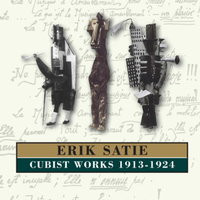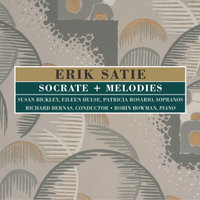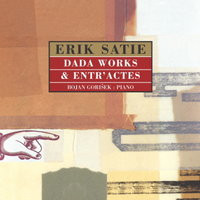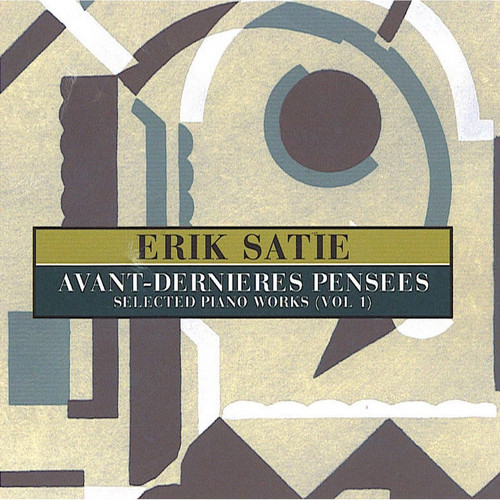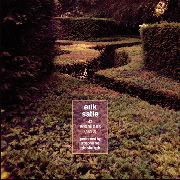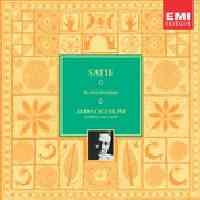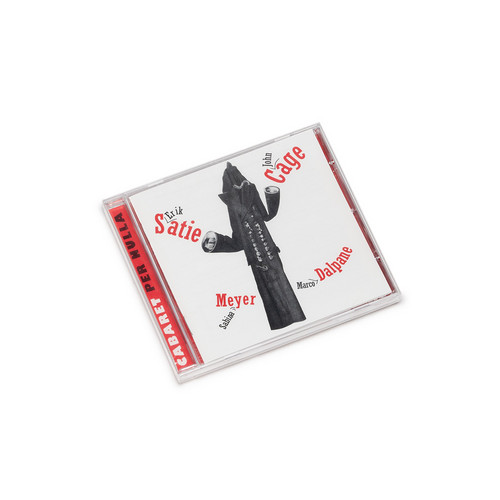Erik Satie
Alfred Éric Leslie Satie was a French composer and pianist. Starting with his first composition in 1884, he signed his name as Erik Satie. Satie was introduced as a "gymnopedist" in 1887, shortly before writing his most famous compositions, the Gymnopédies. Later, he also referred to himself as a "phonometrograph" or "phonometrician" preferring this designation to that of "musician," after having been called "a clumsy but subtle technician" in a book on contemporary French composers published in 1911. Although in later life he prided himself on always publishing his work under his own name, in the late nineteenth century he appears to have used pseudonyms such as Virginie Lebeau and François de Paule in some of his published writings.
Alfred Éric Leslie Satie was a French composer and pianist. Starting with his first composition in 1884, he signed his name as Erik Satie. Satie was introduced as a "gymnopedist" in 1887, shortly before writing his most famous compositions, the Gymnopédies. Later, he also referred to himself as a "phonometrograph" or "phonometrician" preferring this designation to that of "musician," after having been called "a clumsy but subtle technician" in a book on contemporary French composers published in 1911. Although in later life he prided himself on always publishing his work under his own name, in the late nineteenth century he appears to have used pseudonyms such as Virginie Lebeau and François de Paule in some of his published writings.
Satie
** 2026 Stock ** Satie is the point where Erik Satie’s so‑called “furniture music” stops being background and becomes a way of listening to the world. In these recordings, Aldo Ciccolini approaches Satie not as a quirky footnote to Debussy and Ravel …
Uspud / Cinéma
GOD Records is very happy to present its first release from the controversial composer with cult status, Erik Satie. He influenced not only the entire musical language of John Cage but also an entire generation of 20th and 21st -century composers, wh…
Haze - Almanacco Di CUltura Di Sonora N.2 (Magazine)
*Italian Language Edition* Un libro/almanacco con cadenza quadrimestrale che raccoglie saggi, interviste, approfondimenti sulla ricerca sonora contemporanea per un concetto allargato di musica. Nel secondo volume: Fred Frith, Paolo Conte, William Par…
A Mammal’s Notebook: The Writings of Erik Satie (Book)
Humorous and Dadaistic writings from the original Velvet Gentleman and pioneering composer
Socrate
Beautiful rendering of French composer Eric Satie's 1918 masterwork "Socrate", originally for four sopranos and chamber orchestra, here stripped to its essence as a duo with Olalla Aleman on soprano and Guy Vandromme on piano, maintaining Satie's cha…
Vexations
Written by eccentric French composer Erik Satie in 1893, the extraordinary score for Vexations is just three lines long, yet a complete performance (840 repetitions) may last for anything between 14 and 28 hours. First performed by John Cage in 196…
Cubist Works 1913-1924
Cubist Works presents four works composed by Erik Satie between 1913 and 1924 for his collaborations with Pablo Picasso. These include piano and orchestral versions of his scores for the celebrated 'Cubist' ballets Parade (1917) and Mercure (1924)…
Socrate + Melodies
This acclaimed recording of Erik Satie's symphonic drama Socrate is performed by Music Projects London, and was originally released on Factory Classical. Completed in the spring of 1918, Socrate is a typically eccentric piece from avant-garde compose…
Dada Works & Entr'actes
A collection of Dada-related works by French avant-garde composer Erik Satie (1866-1925) including music used by Francis Picabia, Tristan Tzara, Kurt Schwitters and René Clair. An enthusiastic Dada activist in Paris between 1920 and 1924, Satie colla…
Avant-Dernieres Pensees: Selected Piano Works
Avant-Dernières Pensées collects together several of Erik Satie's best known compositions, including the famously poised Trois Gymnopédies, all six haunting Gnossiennes, and Je te Veux. Also included are more experimental pieces such as Descriptions …
42 Vexations
16 page booklet including Cage's Place In the Reception of Satie by Matthew Shlomowitz. Erik Satie's 1893 Vexations is musique d'ameublement - literally, "furniture music", the phrase coined by Satie in 1917, where he identifies sound as drapes, tili…
L'oeuvre pour piano
A beautiful boxed edition with an outstanding version of Satie's piano music performed by Ciccolini, who is totally inside this music and makes the most of its contrasts of mood and atmosphere. Ciccolini's playing is pliant and graceful, and under hi…
Cabaret per Nulla
This album comes from the love for Music. Contemporary music, but also Songs. From the love for History and People. From the observation of a stage before and after a concert. And from Friendship and Collaboration.Erik Satie and John Cage were two mu…
